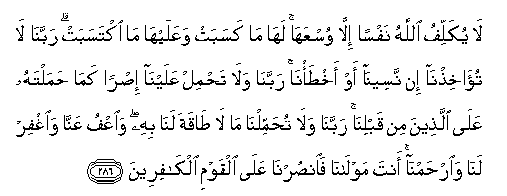Our Mawla
Allah SWT tells us in His Qur'an that He has created Man and Jinn to "liyabuduun."

51:56. I have only created Jinns and men, that They may serve Me.
The root or masdar of yabuduun is 'abd,' 'servant/slave.'
When we think of slaves, either in the context of American slavery or Mediterranean/Roman slavery, we do not think of freedom. We think only of the ownership of a human being, ownership that is so complete as to render that person powerless. Power requires freedom of will. To be a slave is to have no free will.
While in America, a slave had little hope of freedom, in Rome and in the Arab world, a slave could obtain freedom either by purchasing it or by being freedom by the owner. Islam with its emphasis on freedom and justice, encouraged freeing slaves. Abu Bakr was well known for purchasing and freeing many slaves, especially Bilal, our first muezzin.
In Arabia, and in the Mediterranean in general, a master who freed his slave maintained a special relationship with that person. In fact, in certain cases the master would inherit from his slave. A freed slave (liberta in Latin), would become like "family" to his former master. In Arabia, the master was then referred to as a "mawla," "the master who freed the slave."
La Ikraha Fi Deen

2:285. The Messenger believes In what hath been revealed To him from his Lord,
As do the men of faith. Each one (of them) believeth In God, His angels,
His books, and His apostles.
"We make no distinction (they say) Between one and another
Of His apostles." And they say: "We hear, and we obey:
(We seek) Thy forgiveness,
Our Lord, and to Thee Is the end of all journeys."
As do the men of faith. Each one (of them) believeth In God, His angels,
His books, and His apostles.
"We make no distinction (they say) Between one and another
Of His apostles." And they say: "We hear, and we obey:
(We seek) Thy forgiveness,
Our Lord, and to Thee Is the end of all journeys."
Allah SWT has also freed humanity. He created us with free will. We can freely choose to worship and serve Him, or we can turn away, thereby wronging our own souls. But when we turn toward Allah SWT, we begin with belief - "amana" "Amana" means to believe, to have faith, and to turn our qalb/hearts toward something - in this case Allah. Hate/karaha is to turn away. Hate is the response of Shaytan when he was called to obey Allah. We, as humans, are also called to obey Allah, and when we do so of our our free choice, we turn in "amana", love toward Allah SWT.
Notice in the ayat above, the believers, mu'minuun, believe, and after belief, they hear and obey. They freely agree to obey and to seek forgiveness from Allah, recognizing that Allah is their Lord, their Rabb and ultimate source of security and rest.

Each individual receives reward for every good that it earns,
And it suffers every ill that if earns.
We say, "Our Lord! Condemn us not If we forget or fall into error or make mistakes;
our Lord! Lay not on us a burden Like that which Thou Didst lay on those before us;
Our Lord! lay not on us A burden greater than we Have strength to bear.
Blot out our sins,
And grant us forgiveness,
Have mercy on us.
Thou art our Master who has freed us;
Grant us victory over the call to disobedience and denial.
Anta Mawlana
Anta Mawlana - Oh Allah, You are our Master who freed us. We were slaves to ourselves, to our desires, to that call to disobedience and denial. Real slavery is not service to Allah, it is slavish obedience to our desires, to the calls of Shaytan to turn us away from Allah and toward hate, anger, and evil. Allah SWT have given us His Guidance so we can be free. All we have to do is turn toward Him in love, and He frees us. That free choice to turn in obedience to Him is what really frees us from pain, burning desire, loss and death. He is the master who frees us and the reward is freedom, and victory. And victory is His Nasr - Nasr Allah - His aid, protection, guidance, and in the end, His Presence in the Jennah Firdaws. By creating us with free will, He gave us the power to act freely and turn toward Him. He frees us in two way; first in our creation, and second by revealing us His guidance.
Anta Mawlana and Nahnu Abuduun.
*All Arabic verses of the Qur'an are from the Hypertext Quran website: http://www.sacred-texts.com/isl/htq/index.htm
